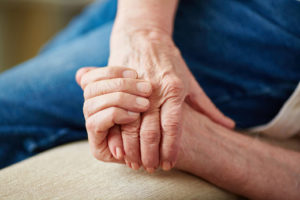
 Researchers from a US university provide new insights on the factors that affect health-related quality of life in older adults with cancer, in order to help identify survivors who are most vulnerable and at risk for poor health outcomes.
Researchers from a US university provide new insights on the factors that affect health-related quality of life in older adults with cancer, in order to help identify survivors who are most vulnerable and at risk for poor health outcomes.
“Quality of life studies tend to focus on one cancer at the time, on the period during treatment, and on specific cancer drugs or treatments; however, as people live longer after a cancer diagnosis, it is important to understand the contribution of other factors to quality of life regardless of cancer type or treatment,” says Dr Maria Pisu from the University of Alabama at Birmingham.

Dr Pisu and her team surveyed 1,457 adults aged 65 years or older. Most of the respondents were not actively receiving cancer treatment at the time of the survey and were one year or more past their diagnosis. The survey explored factors in physical, psychological, social, and spiritual domains that could impact quality of life.
It was found that the physical and mental components of quality of life were likely affected by factors across different domains. The most important contributors associated with worse physical quality of life included more severe symptoms of pain, fatigue, and disturbed sleep in the week leading up to the survey, as well as other medical conditions that patients had besides cancer.
Also important were social domain factors related to support needs, such as needing help when fatigued. Being physically active appeared to be an important contributor to better physical quality of life. The most important contributors linked with worse mental quality of life were again the severity of symptoms such as fatigue and disturbed sleep. Other likely contributors included the need for emotional support and having financial hardship events.

The research findings were published recently online in CANCER, a peer-reviewed journal of the American Cancer Society.
The study’s results have implications for the care of older cancer survivors. “The approach to care for this population has to be one of comprehensive health promotion that includes appropriate management of symptoms and comorbid conditions and the promotion of healthy lifestyles,” said Dr Pisu.
“Moreover, their care should recognise the importance of older survivors’ social contexts and the support needs that they may have, including those related to financial challenges,” she added.
Be a part of Elets Collaborative Initiatives. Join Us for Upcoming Events and explore business opportunities. Like us on Facebook , connect with us on LinkedIn and follow us on Twitter , Instagram.












